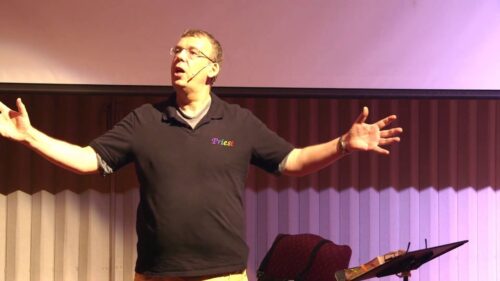“Eternal hostility to Foreign and Roman Catholic influence!”
This sentiment was written at the bottom of a Know-Nothing party ticket in Ohio, around 1855. During the same era, the New York Times ran job postings with frequent instructions that “Irish need not apply.” Keep the Catholics out. That was over 160 years ago.
In a twist of fate, this summer in the United States we are experiencing a dramatic escalation in the Catholic rhetoric against LGBTQ persons. In August alone, sexuality and gender-identity policies have caused dust-ups in Lafayette, La.; Sioux Falls, S.D.; and Omaha, Neb. Their message: LGBTQ persons need not apply.
“This policy is intentionally exclusionary,” reads the policy from the Diocese of Sioux Falls. “It is the expectation that all students, parents, employees and guests at Catholic parish and Catholic school facilities respect these policies as a condition of their presence at Catholic school facilities.” For those who do not comply, “the privilege to attend the Catholic school or serve in an employed position for the school will be taken away.”
How might we reconcile these prescriptions with the hospitality of Jesus Christ, who “welcomed [crowds] and spoke to them about the Kingdom of God”? (Lk 9:11)
And what of the Parable of the Lost Sheep? It reads: “What man among you having a hundred sheep and losing one of them would not leave the ninety-nine in the desert and go after the lost one until he finds it” (Lk 15:4). This parable, along with the consistent ethic of life, suggest that the needs of the many do not outweigh the needs of the few.
Yet the policy in Sioux Falls reads, “the Catholic school’s mission and its responsibility to all parents shall at all times be viewed as the greater consideration than a school administration’s concern for any one student.” This appears to contradict “The Identity of the Catholic School for a Culture of Dialogue,” the January 2022, instruction from the Congregation for Catholic Education, which says a Catholic school is a “school for all, especially the weakest.”
In the Diocese of Lafayette, “full cooperation with this policy … is required and a condition precedent to the continued enrollment of each student and the continued employment of each employee.” This is deemed a “spiritual mandate.”
“In August alone, sexuality and gender identity policies have caused dust-ups in Lafayette, La.; Sioux Falls, S.D.; and Omaha, Neb. Their message: LGBTQ persons need not apply.”
At the beginning of his public ministry, Jesus announced that his spiritual mandate was “to bring glad tidings to the poor … proclaim liberty to the captives, and recovery of sight to the blind, to let the oppressed go free” (Lk 4:18). Is this not the spiritual mandate of our baptism, when we are anointed to share in the mission of Jesus Christ?
Next, in contrast to the Seussian repetition that “a person’s a person, no matter how small,” the policy in Omaha repeats this imperative at least four times:
If the matter is not resolved, the student cannot be enrolled in [INSERT NAME OF SCHOOL]. If the child is a current student, the parent will be given the opportunity to withdraw the parent’s child from [INSERT NAME OF SCHOOL]. Should the parent choose not to withdraw, [INSERT NAME OF SCHOOL] will dismiss the student.
All 70 schools in the Archdiocese of Omaha are mandated to implement this policy on January 1, 2023. But how does this message harmonize with Christ’s inclusive invitation to the reign of God? “Come, you who are blessed by my Father … For I was hungry and you gave me food, I was thirsty and you gave me drink, a stranger and you welcomed me, naked and you clothed me, ill and you cared for me, in prison and you visited me” (Mt 25:34-36). But woe to those who “impose on people burdens hard to carry, [yet] do not lift one finger to touch them” (Lk 11:46).
The Catholic Church has an obligation to defend faith and morals, order and discipline. That principle is not in question. What accounts for the controversy is the new strategy to keep LGBTQ persons from being fully integrated in our Catholic communities.
In each case, there is a claim that “scandal and confusion” must be avoided. But don’t we risk greater scandal and confusion by misrepresenting the love of Christ, which extends to all people without exception? (CCC 478) Doesn’t the reign of God belong to such as these? (Mt 19:14)
“What accounts for the controversy is the new strategy to keep LGBTQ persons from being fully integrated in our Catholic communities.”
The way forward requires a reckoning. As the synodal process will surely lay bare, the institutional church needs to discern a more pastoral approach to the LGBTQ community. As Pope Francis said in 2016, “the church should apologize … for having blessed so many weapons.” A more catholic approach can still protect ideals, which are models of perfection, without promoting ideologies or unchallenged assumptions.
This begins with a strategy that stops using LGBTQ persons as object lessons and seeks to integrate them as missionary disciples. How can we speak with people in a way that promotes relationships? As we read in the Parable of the Good Samaritan and the story of the Woman at the Well, we should lead with virtue: humility, simplicity and compassion.
Our capacity for empathy grows when we encounter people in closeness, in a “revolution of tenderness,” said Pope Francis in 2017. Antagonistic positions do not serve the needs of this dialogue. Furthermore, dioceses must consider a more collaborative approach to policy design. Helpful examples already exists with the “case staffing” model employed in industries like health care, mental health services, education, law and government. The aim is to bring together credentialed experts to share their knowledge and skill for seeing things whole.
Listening to the voices of those who are the most affected by these policies–LGBTQ people and their families and friends–is not only characteristic of the synodal model of governance, not only characteristic of Christian discernment, it is characteristic of the church itself, which recognizes the presence of the Holy Spirit active and alive in all people, LGBTQ people included.



